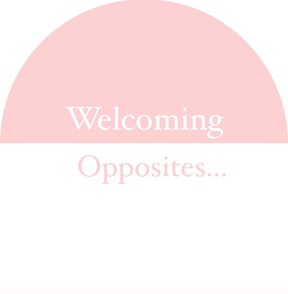Even though I’m a twin, I identify as the eldest (by thirteen minutes) in my family. I’ve always been incredibly capable, competent, and directed. I make plans, set goals, and get things done.
Parenting has been no exception. From the get go, I’ve had it all planned out and, when things haven’t gone as planned, I’ve pivoted and made new plans, better plans. And that’s the way it’s been for eighteen years.
I could cry as I write this because I have no parenting plan anymore. My daughter is eighteen and she doesn’t need me to direct her life. My planning persona has collapsed into itself. The columns and rows in this spreadsheet are filled with error messages. The calendar is covered with ink smears and gibberish. The car is out of gas and I don’t have any of the right clothes to wear.
I feel totally out of control, like I don’t understand my job. I’ve been listening to self-help and parenting podcasts like a med student cramming for the boards. I recently heard a parenting expert say that when our kids get ready to leave home we have to convert from being the director of their lives to the consultants.
The key here is that to be a consultant you have to be consulted. In other words, you have to be asked for advice or support or guidance. Sure, we can try to continue to direct our children’s lives but their reaction will likely be to do the exact opposite of what we say in a defiant show of independence and autonomy.
Moving from director to consultant is fucking hard for me. I have to don a verbal straight jacket to keep myself from barking directions and next steps. I’ve been pretty good about it lately because I am trying really hard. But if I’m honest, it feels totally out of body. I feel like I’m trying to quit smoking or eating sugar. My habit, my total addiction to directing my daughter is deprived every day. I’m tweaking from the withdrawals.
I keep telling myself that it will get easier with time. I will stop craving the need to direct my child’s life. I will wake up and my need for the rush of motherhood will be gone. It hasn’t happened yet, but I’m committed to keep trying.
I truly want to move from director to consultant. I worry that if I don’t I’ll miss the opportunity to really know my daughter. Whenever I hear those parenting experts share wisdom on best parenting practices, I think to myself, “Fuck, Fuck, Fuck! I did this completely wrong and now my daughter is completely cooked and what if I’ve ruined her by not doing all of those things I should have done?”
This rabbit hole thinking fuels my desire to continue directing. If I can get a little bit more parenting in, maybe I can salvage all of my missteps. I know this is crazy. At this point, I can’t salvage anything but my future relationship with my practically grown daughter.
Last night my daughter was doing homework and the dining room table, writing an essay for her Language Arts class. I really wanted to sit opposite of her and help. It’s been years since I’ve helped her with school work. But working on curbing my addiction, I took my laptop into the living room, plugged in my air pods and watched the final season of the Morning Show.
A few minutes into my show, my daughter hollered, “How do you spell commiserate?” I put my show on pause and we went back and forth about how she’d spelled it, etc. Then it happened again with another word and then another. Eventually I turned the volume down on my show and put the subtitles on so I could hear her when she needed help.
“This is consulting,” I thought to myself happily as I sunk into the couch half-watching a show I didn’t really care about. “She’s in control of the asking.”
It was a small example, but an important one. I got it right this time and it felt good. This consultancy period is an important new stage of parenting that I can honor or ignore.
In one of my recent podcasts I heard that parents get 70% wrong and 30% right. These statistics made me feel hopeful, like maybe I’m in the realm of normal. Parenting has never been simple, but it’s never been this hard. Making this shift from director to consultant is one of the hardest things I’ve had to do. Will I achieve a 30% success rate? I’m trying. I’m really trying.








